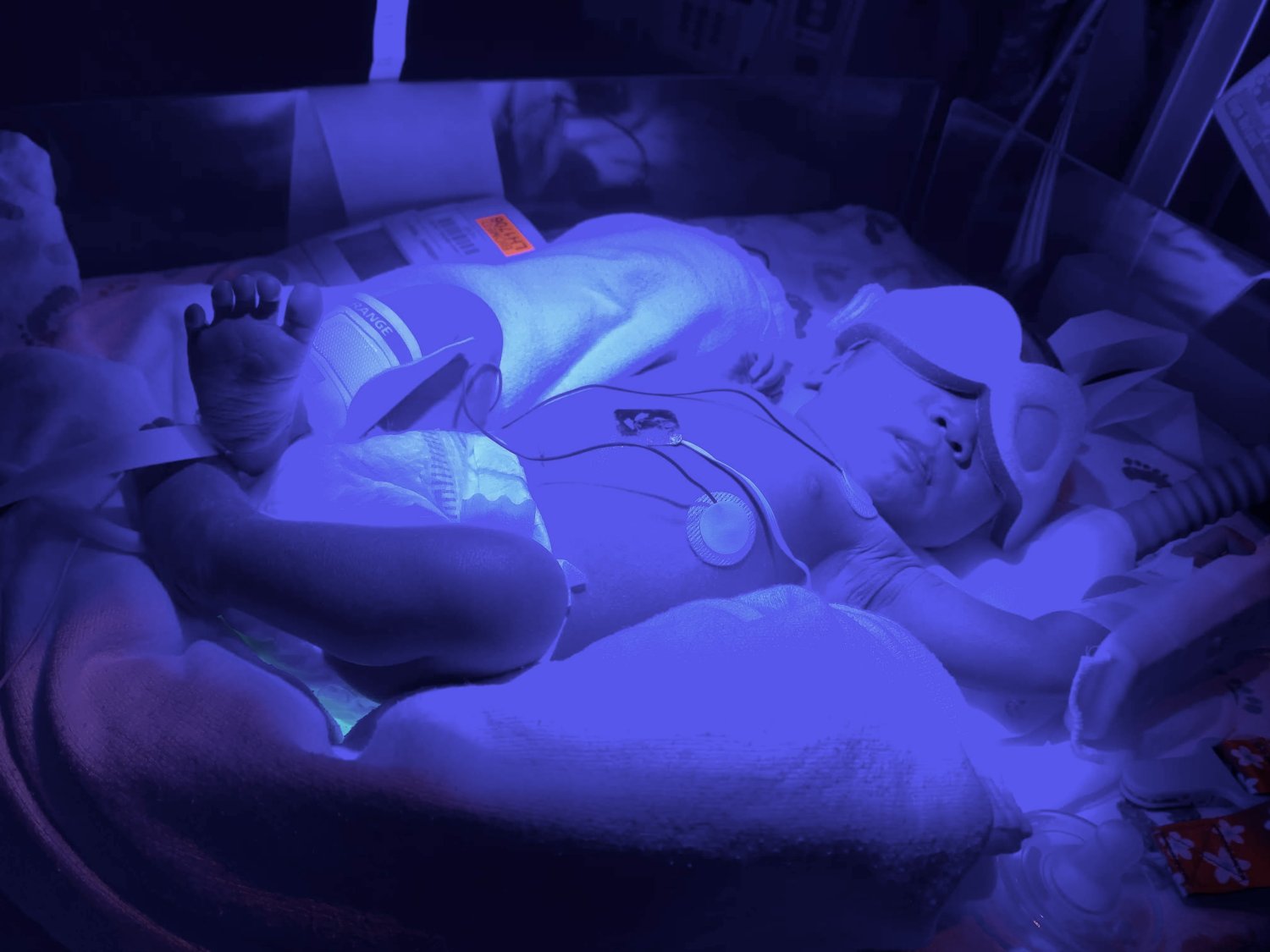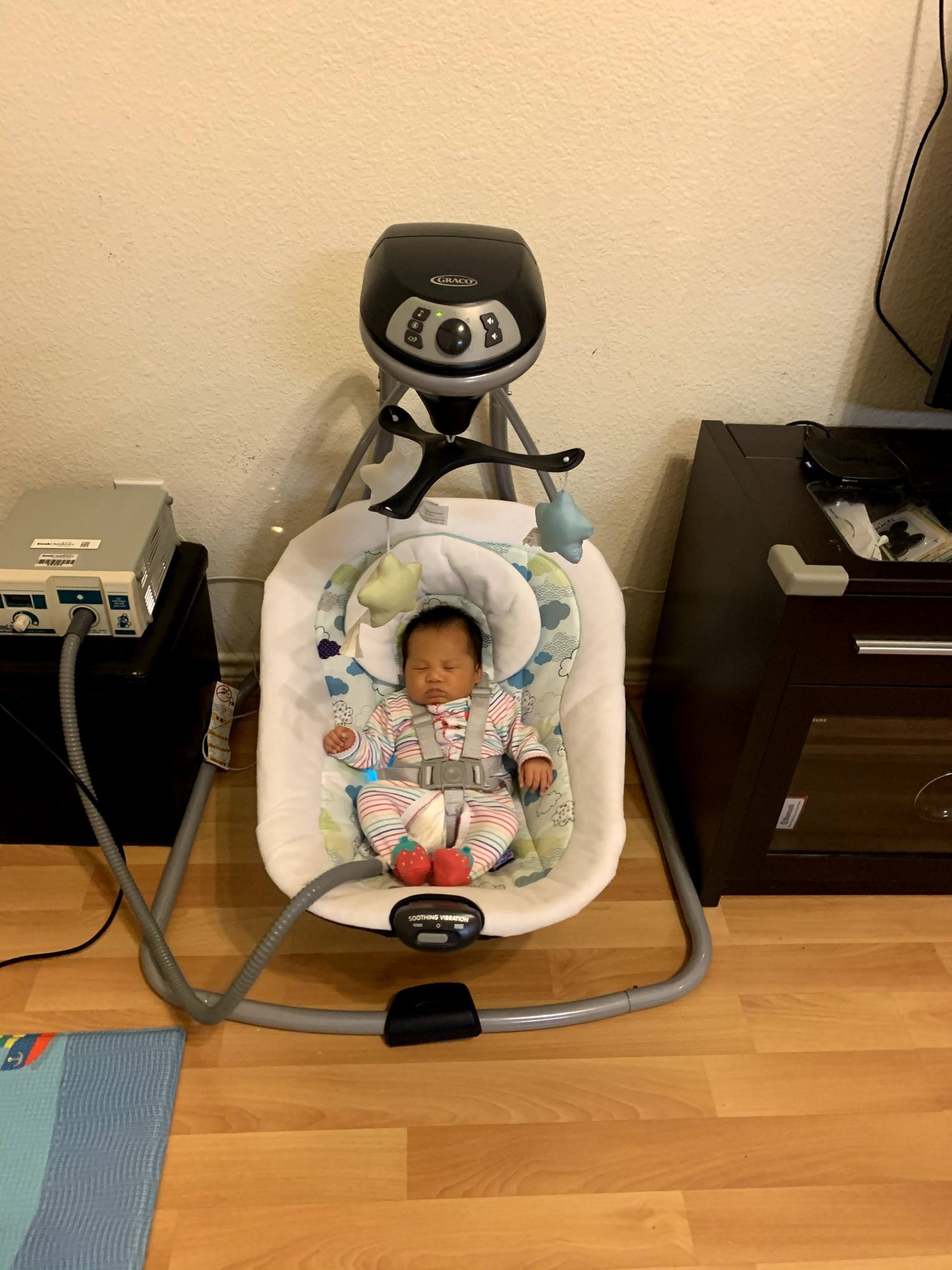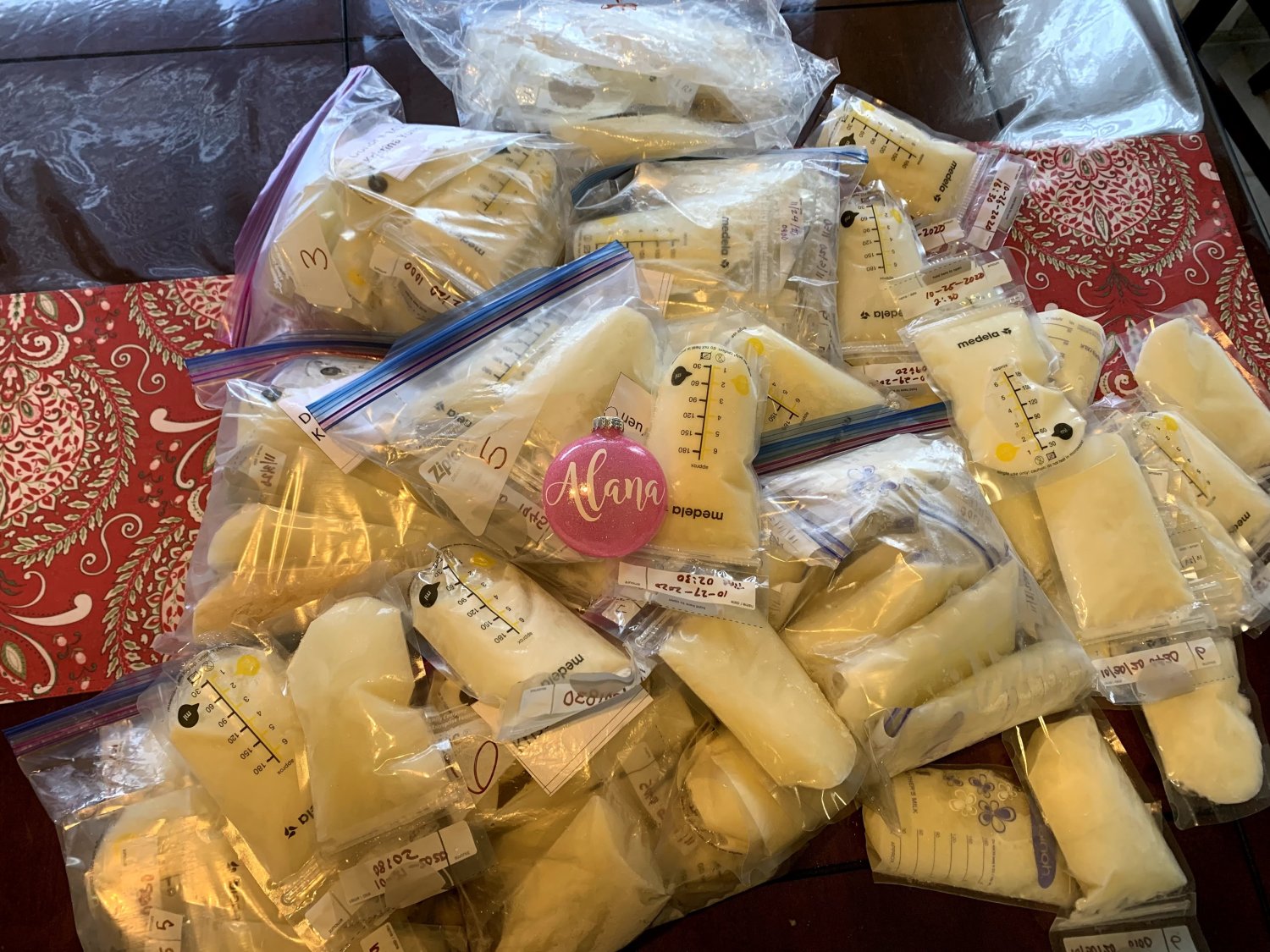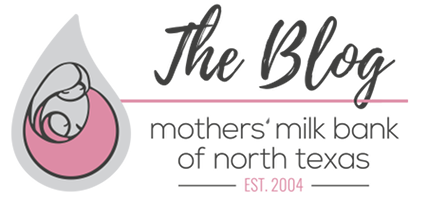How One Lactation Consultant and Milk Donor Overcame Her Own Struggles with Breastfeeding
International Board-Certified Lactation Consultants keep new families happier and healthier by providing breastfeeding education and support. Kristina, a lactation consultant at Texas Health Presbyterian Hospital Dallas, shares her personal breastfeeding story below. Although an expert in the field, she experienced unforeseen challenges and was able to succeed through the help of a caring and knowledgeable healthcare team.
Lana was born in the fall of 2020. Although it was during the pandemic, her birth was uneventful. Lana was my third child , so I felt confident in breastfeeding her. She latched on easily and quickly brought in my milk. She was exclusively breastfed in the hospital and for the first two weeks at home.
At her two-week checkup, she was not back to birthweight which was a surprise to me as she was breastfeeding well, or so I thought. I had noticed she had become sleepier and had to be woken up for feedings which is unusual for a full-term baby at two weeks of age.
Her pediatrician checked her bilirubin level for jaundice, and it was high at 25mg/dl. I was instructed to take her to the emergency room immediately as she was at risk for a bilirubin induced neurological deficit. A recheck of her bilirubin level was even higher at 28mg/dl. She was transferred to the NICU, where she received phototherapy. She was in the hospital for one week.
I am thankful for the doctors, nurses and lactation consultants who encouraged and supported my wish to continue to breastfeed and provide extra breastmilk by bottle as needed. Though her bilirubin levels were more stable after treatment, they continued to be higher than normal. It was recommended I switch from breastmilk to formula because it is known that bilirubin binds to breastmilk and keeps it circulating in the blood stream longer.
I was heartbroken but wanted to do what was best for Lana. For the next eight weeks, I bottle fed her with formula, pumped my breast milk and froze it, hoping she would be able to resume breastfeeding one day. I reached out to the lactation consultants I work with for advice and support to maintain my milk supply. She had weekly labs, and over time, I was told I could reintroduce breastmilk to her diet gradually. At eight weeks, genetic studies confirmed she had a rare genetic condition, Crigler Najjars Type 2, which prevents Lana’s liver from excreting bilirubin efficiently.
I ended up breastfeeding Lana for three years as well as being able to donate my extra breastmilk to the Mothers’ Milk Bank of North Texas. She is a happy healthy child and well able to keep up with her two older brothers. Because of her condition she cannot tolerate most common antibiotics and will have to monitor her bilirubin levels carefully if she gets sick.
When I lamented my worry about this with her GI doctor, she reassured me that she is less likely to need antibiotics because she was breastfed for so long and will have a strong immune system to fight off infection. This one statement from her GI doctor was so empowering and affirming for me to hear and reassured me that I did the right thing for my daughter.
When I tell Lana’s story, people often say it is because I am a nurse and lactation consultant that I was able to preserve breastfeeding. Honestly, I am thankful for the knowledge and training I had, but it was the doctors, nurses, lactation consultants, friends, family and my husband who supported and encouraged me to protect my breastfeeding relationship with Lana. As a nurse, this experience has taught me that what we say matters to our patients and can have a lasting effect.




